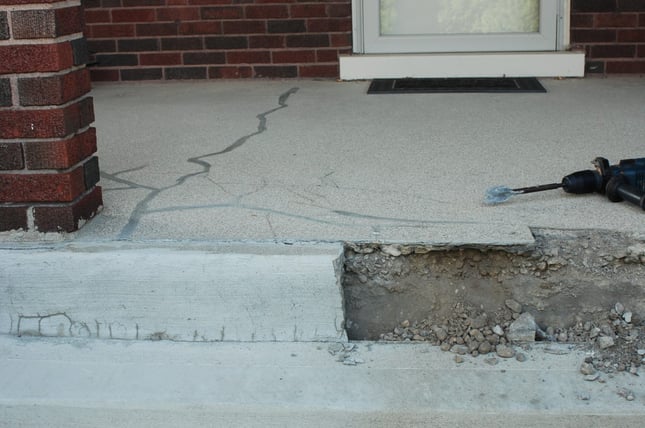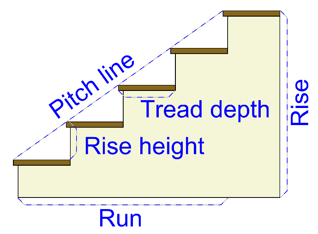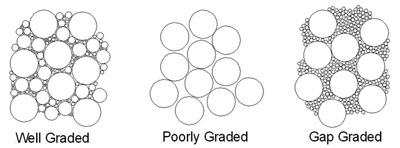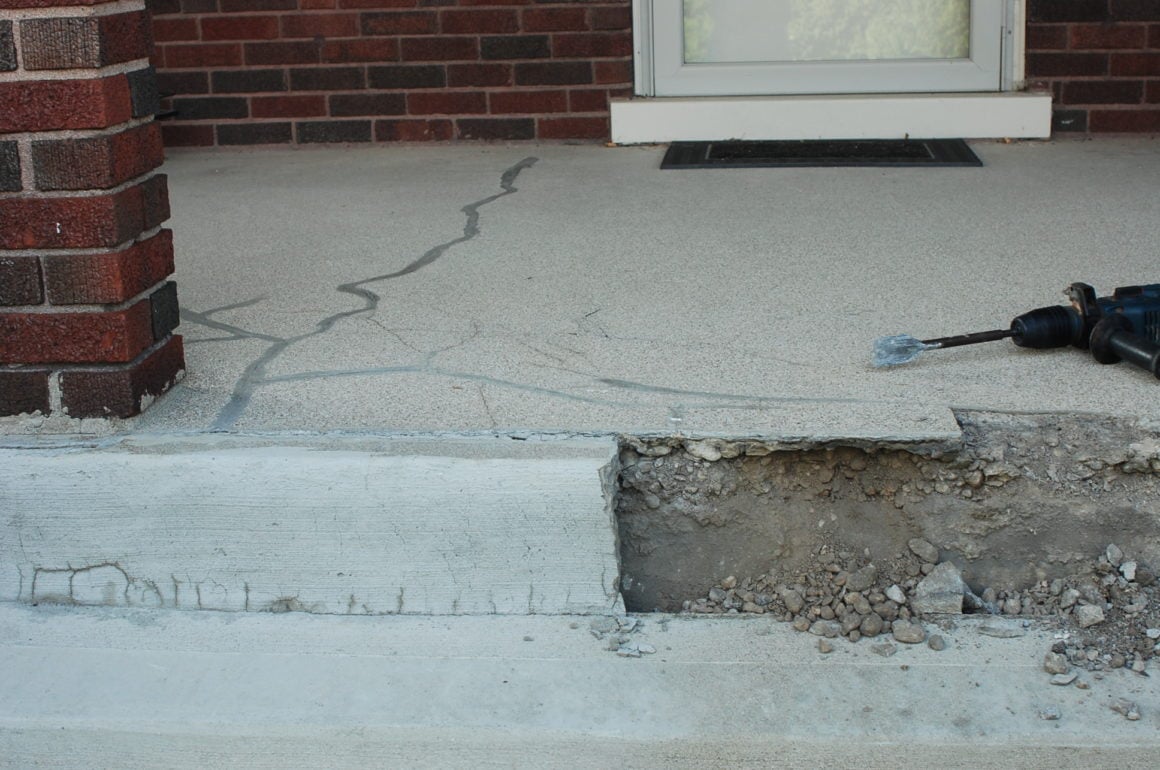
There Are 2 Ways to Build Steps
Techo-Bloc offers countless products necessary for outdoor step construction.
Two options are: risers built with wall block units and caps, as well as large precast step units. The earlier option is constructed with a row of individual segmental wall units and a cap/coping unit then becomes the stair tread. In contrast, the latter option utilizes a solid unit that doubles as a riser and tread. Although both options are perfectly acceptable, there is less risk of unraveling (wall system installation failure) when using the second option.
 Step Diagram
Step Diagram
Build with the Right Dimensions
Some safety guidelines must be taken into account during the planning phase of step construction. According to international building code, the rise of the steps must measure a minimum of 4 inches (102mm) and up to a maximum of 7 inches (178mm). Similarly, tread depth on the step must comply with the 11 inch (280mm) minimum regulation.
Backfilling and Void Filling Steps
Should I use densely graded aggregate (ASTM C2940) or open graded aggregate (ASTM #57)?  First and foremost, densely graded aggregate requires a lot of effort in order to achieve total compaction (98% standard proctor density), whereas open graded aggregate is about 95% consolidated when dumped. Given the little to no compaction required with open graded aggregate there is less of a chance to move or push the riser out. On that note, this option also has lower mass and will not hold water like the densely graded aggregate will.
First and foremost, densely graded aggregate requires a lot of effort in order to achieve total compaction (98% standard proctor density), whereas open graded aggregate is about 95% consolidated when dumped. Given the little to no compaction required with open graded aggregate there is less of a chance to move or push the riser out. On that note, this option also has lower mass and will not hold water like the densely graded aggregate will.
Do You Need a Hand-Rail?
Generally speaking, a handrail is necessary once a staircase includes 4 or more steps. Please confirm regulations with your local municipality before construction. Techo-Bloc recommends core drilling and using a two-part epoxy or anchoring cement to bond the rail to the block. Never attach the rail only to the cap.
A Solid Base So Your Steps Don't Displace
The base under the steps should measure a minimum of 6 inches using either ASTM C2940, ASTM #57 or Unreinforced concrete (Flowable Fill). We do this for extra footing/support for the stone staircase to make sure that ground-settlement and freeze-thaw doesn’t lead to the unraveling of the steps. This base must extend 6 inches beyond the toe of the units and allow for one full block to be below ground-level. Special considerations may be necessary depending on soil type or if the project is a new construction. Some cases require a concrete pad that is pinned into the foundation of the home.
Geo-Grids Are Your Secret Weapon to Long-Lasting Staircase Sturdiness
Geo-synthetics are inexpensive and offer 4 core benefits to step construction:
1. Prevent soil contamination: A quality woven geotextile between the excavated soil and base stone will prevent soil contamination that would otherwise lead to settling. This woven geotextile will also bridge some minor settlements in the subgrade.
2. Use of a bi-axial geo grid will tie together different sides of a step.
3. Stabilization of the backfill aggregate.
4. Geo-grid for paved step landings: A short strip of geotextile between the landing and the back of the tread will prevent any downward migration of sand that would otherwise lead to settling.
No One Wants a Skating Rink on Their Steps. Steps That Can Take De-Icing Salts
Winter use of any type of step system can become dangerous with snow and ice. Techo-Bloc’s de-icing salt resistance warranty for all dry cast products means that de-icing salts can be used to make your staircase safe. The resistance of de-icing salt can be increased by applying a sealer. It is recommended to use an invisible or clear sealer so as to ensure that wear doesn’t develop on the steps. Products for dry cast and wet cast steps are offered by Alliance.
Segmental steps offer a huge aesthetic upgrade as well as great life cycle value. They are a lifetime upgrade to your home or business.
WANT TO KNOW MORE ABOUT STEPS INSTALLATION?



